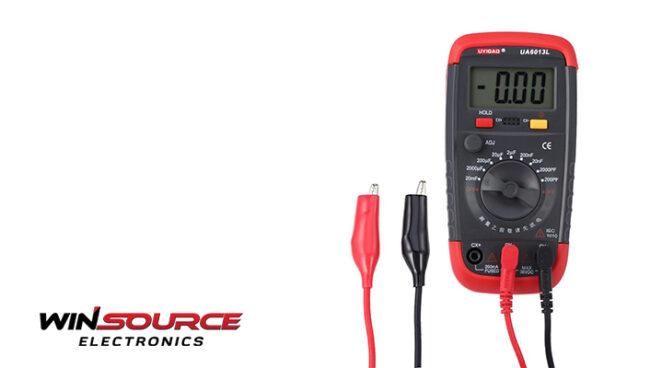
In electronics, capacitors form the backbone of most circuits, along with resistors and transistors. Ensuring the integrity of capacitors is critical as their failure can compromise overall system performance. Traditional capacitor testing methods have served us well, but as technology evolves, so should our tools. A smart capacitor tester is a modern device that not only improves the efficiency of capacitor testing but also revolutionizes the entire process.
Table of Contents
ToggleUnderstanding Capacitors: A Brief Overview
Capacitors store and release electrical energy. Essentially, they are like small rechargeable batteries that charge and discharge very quickly. Over time, capacitors can degrade due to factors such as overvoltage, temperature fluctuations, and wear and tear. This degradation affects their ability to store charge, so regular testing is required.
Traditional Capacitor Testing: Limitations
Historically, multimeters have been used to check the resistance of capacitors, known as the equivalent series resistance (ESR). While these methods provide insights, they also have limitations:
Lack of comprehensive data: Traditional testers measure basic parameters, often ignoring key indicators such as dielectric absorption and leakage current.
Inefficiency: The process is often manual, requiring an investment of time and effort from a technician.
Error prone: Manual processes inherently have a high risk of human error, which can lead to misdiagnosis.
The Rise of Smart Capacitor Testers
The Smart Capacitor Tester is more than a tool; it is a tool. This is a comprehensive solution. Leveraging advances in microelectronics, data analysis, and connectivity, these testers are redefining capacitor diagnostics.
Automatic Measurements: Gone are the days of manual readings. Simply connect the capacitor and the device will perform a series of tests to get a complete picture of the health of the capacitor.
Advanced diagnostics: In addition to ESR, these testers can also measure parameters such as capacitance, leakage current, dielectric absorption and even tan(δ) value to get a more detailed understanding of the condition of the capacitor.
Data Integration: With built-in memory and connectivity options, these devices can store and upload data to cloud platforms for better tracking, trending and predictive maintenance.
Portability and Durability: The modern design prioritizes portability without compromising durability. This ensures that the tester can be used in a variety of environments from the laboratory to the field.
Advantages of Smart Capacitor Tester
Efficiency: The speed of automated testing significantly reduces diagnostic time.
Accuracy: Advanced diagnostics reduce the margin for error, ensuring accurate identification of faulty capacitors.
Predictive Analytics: Through continuous data collection and cloud integration, engineers can predict when capacitors are approaching the end of their life cycle, allowing them to be replaced in advance.
Cost Savings: Efficient, accurate testing reduces the need for frequent replacements, saving component costs and reducing system downtime.
In conclusion
The Smart Capacitor Tester embodies the potential of integrating modern technology into traditional electronics tools. As capacitors continue to play a critical role in our electronic devices, the need for efficient, accurate and intelligent test solutions has become even more apparent. Adoption of this next-generation tool not only ensures the longevity of electronic systems, but heralds the era of efficient and data-driven electronic maintenance.

COMMENTS